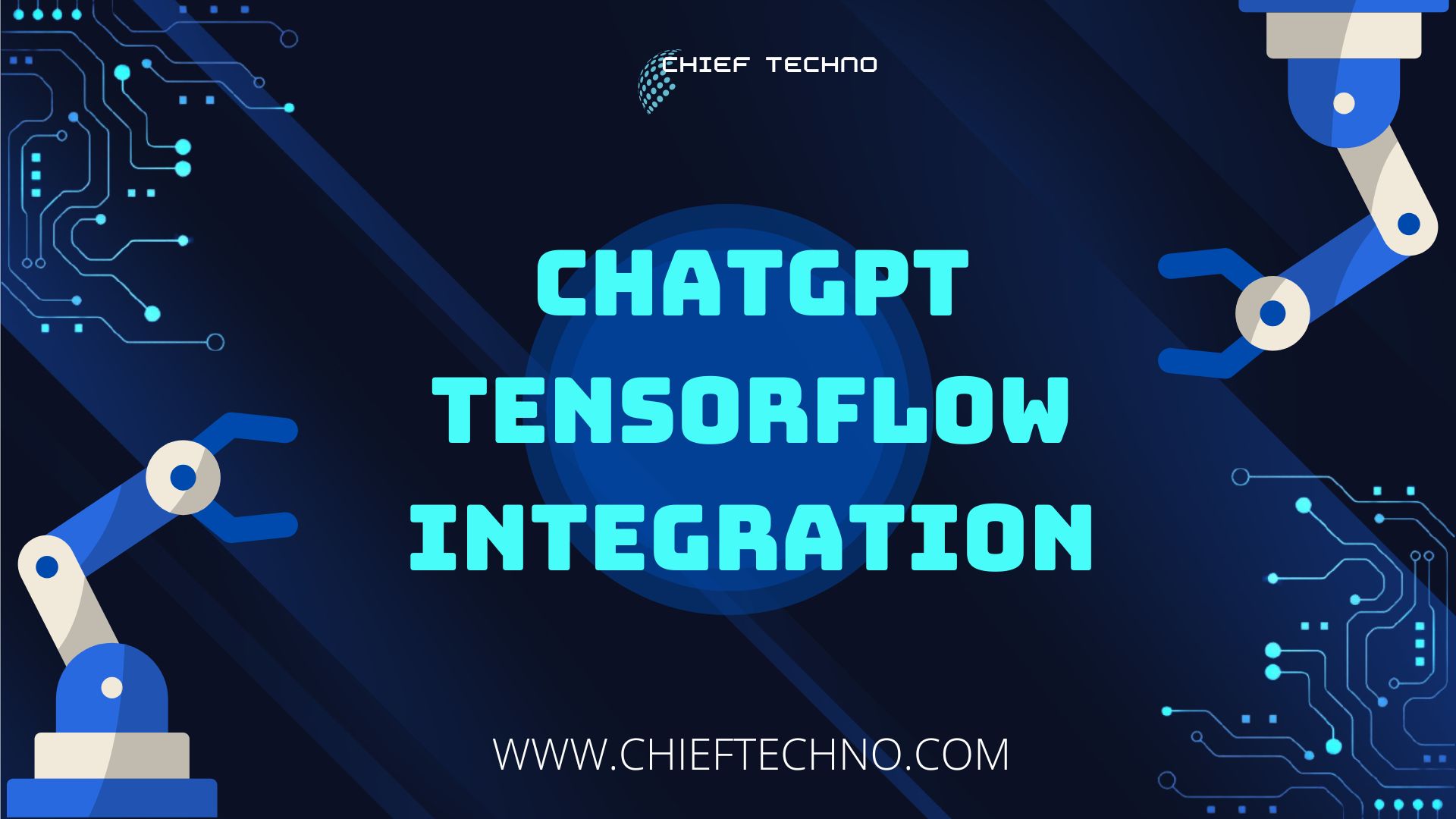



In recent years, language models have become one of the most important artificial intelligence applications. The development of language models like GPT-3 (Generative Pretrained Transformer 3) by OpenAI has revolutionized the field of natural language processing. One of the fine-tuned versions of GPT-3, called ChatGPT, is specifically designed for conversational purposes. On the other hand, TensorFlow is an open-source software library developed by Google Brain team that provides a platform for data flow and differentiable programming. In this article, we will explore the ChatGPT TensorFlow integration and its applications.
GPT-3 is a transformer-based language model that has been trained on a massive amount of data to generate human-like text. Fine-tuning is the process of adapting a pre-trained language model to a specific task by training it on a smaller, task-specific dataset. ChatGPT is a fine-tuned version of GPT-3 for conversational purposes. It is capable of generating human-like responses to questions, providing recommendations, and performing various conversational tasks.
ChatGPT has several advantages over other conversational AI models. Firstly, it is trained on a much larger dataset compared to other models, which allows it to generate more diverse and coherent responses. Secondly, it uses the transformer network architecture, which is designed specifically for sequential data like text, making it well-suited for language generation tasks. Finally, it is also highly scalable and can be fine-tuned to perform multiple conversational tasks simultaneously.
TensorFlow is a software library developed by Google Brain team that provides a platform for data flow and differentiable programming. It was originally released in 2015 and has since become one of the most widely used machine learning frameworks. TensorFlow provides a flexible and efficient way to build and train machine learning models, including neural networks.
TensorFlow has a large and active community that contributes to its development and provides support for users. It is used in a variety of fields, including computer vision, natural language processing, and generative models. In addition, TensorFlow provides pre-trained models and tutorials for a range of tasks, making it easier for users to get started with machine learning.
TensorFlow is used to implement the ChatGPT model by fine-tuning a pre-trained transformer network on conversational data. The transformer network is a type of neural network that is specifically designed for processing sequential data like text, making it well-suited for language generation tasks.
The integration of ChatGPT with TensorFlow provides several advantages. Firstly, TensorFlow provides a flexible and efficient platform for fine-tuning the ChatGPT model on conversational data. Secondly, TensorFlow provides pre-trained models and tutorials for a range of tasks, making it easier for users to get started with conversational AI. Finally, TensorFlow also provides a large and active community that contributes to its development and provides support for users.
However, there are also some limitations and challenges associated with the integration of ChatGPT with TensorFlow. Firstly, the fine-tuning process can be computationally expensive, requiring a lot of computational resources and time. Secondly, the model’s performance can be affected by the quality and size of the conversational data used for fine-tuning. Finally, the model’s performance can also be affected by the specific use case and task, as it may not perform well for all conversational scenarios.
Conversational AI and chatbots have become increasingly popular in recent years as a way to provide users with 24/7 support, automate customer service, and enhance the customer experience. ChatGPT with TensorFlow can be used to build advanced chatbots that are capable of generating human-like responses to questions, providing recommendations, and performing various conversational tasks. These chatbots can be integrated into websites, messaging platforms, and mobile apps to provide users with an easy and convenient way to interact with businesses.
ChatGPT with TensorFlow can also be used to enhance customer service and support. The model can be fine-tuned on customer service data to generate human-like responses to customer inquiries, providing a more personalized and efficient customer experience. This can lead to increased customer satisfaction, reduced response times, and lower operational costs for businesses.
Personal virtual assistants are becoming increasingly popular as a way to automate personal tasks and simplify daily life. ChatGPT with TensorFlow can be used to build personal virtual assistants that are capable of performing various tasks, such as scheduling appointments, sending reminders, and answering questions. These virtual assistants can be integrated into mobile apps, voice-activated devices, and other platforms, providing users with an easy and convenient way to interact with technology.
As the field of artificial intelligence continues to advance, we can expect to see further improvements and advancements in ChatGPT and TensorFlow. In the future, we can expect to see ChatGPT models that are even more capable of generating human-like responses, while TensorFlow will continue to provide a flexible and efficient platform for building and training machine learning models.
ChatGPT is a fine-tuned version of GPT-3 for conversational purposes, while TensorFlow is a flexible and efficient platform for data flow and differentiable programming. The integration of ChatGPT with TensorFlow provides several advantages, including a flexible and efficient platform for fine-tuning, pre-trained models and tutorials for a range of tasks, and a large and active community for support.
In conclusion, ChatGPT with TensorFlow is a powerful tool for building advanced conversational AI and chatbots, enhancing customer service and support, and automating personal tasks. Whether you’re a business looking to improve customer experience, a developer looking to build a conversational AI, or a user looking for a personal virtual assistant, ChatGPT with TensorFlow is a tool worth considering.